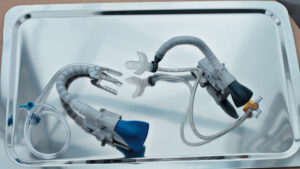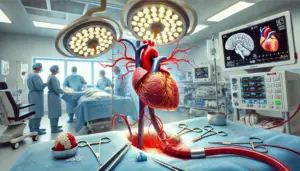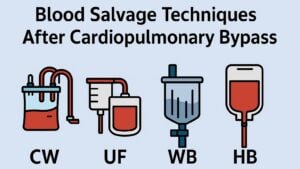Enhanced Abstract:
The scrutiny of mechanical circulatory support (MCS) in the management of cardiogenic shock (CS) raises pivotal questions about the premature endorsement of technologies such as veno-arterial extracorporeal membrane oxygenation (V-A ECMO) and Impella devices. Despite the escalation of therapeutic strategies and resources over the years, CS continues to be a life-threatening condition with a significantly high mortality rate. The increasing application of MCS in CS, recommended by current ESC and AHA/ACC guidelines primarily based on observational studies, has not been unequivocally supported by randomized controlled trials (RCTs) to show a clear mortality benefit.
Evidence concerning V-A ECMO in acute myocardial infarction (AMI)-induced CS indicates no significant improvement in mortality rates, even in large-scale RCTs like the ECLS-SHOCK trial. Several limitations afflict these studies, including open-labeled designs that could bias treatment decisions, high cross-over rates that might dilute the effectiveness of V-A ECMO, and the inadequacy of comparing MCS to “medical therapy alone” due to the necessity of tailoring treatment strategies to patient-specific needs. Moreover, a meta-analysis of individual patient data failed to demonstrate a mortality benefit of V-A ECMO over medical therapy, further questioning the efficacy of V-A ECMO across different patient subgroups and under various clinical conditions.
On the other hand, the shift from intra-aortic balloon pump (IABP) to Impella, following the downgrading of IABP in guidelines, has not been substantiated by robust evidence demonstrating a mortality benefit. Small RCTs and meta-analyses have not shown a significant difference in short-term mortality between Impella and IABP. Additionally, observational studies and propensity-matched analyses have reported higher mortality and major bleeding rates associated with Impella use. The lack of clarity regarding the “optimal” Impella candidate underscores the urgent need for larger RCTs to elucidate its role in CS management.
The discourse on the future application of MCS in CS emphasizes the complexity of managing this condition, requiring experienced multidisciplinary teams and substantial resources. The apparent lack of a one-size-fits-all solution and the absence of a definitive mortality benefit from MCS underscore the potential harm of current guideline recommendations. Historical lessons from the use of IABP, whose lack of mortality benefit was only revealed through RCTs, urge a cautious reevaluation of MCS applications in CS. The quest for identifying a specific CS subgroup that may benefit from MCS remains, suggesting that if such a subgroup exists, it is likely small.
The article calls for a critical reassessment of MCS in CS, advocating for the allocation of this expensive therapy to a narrowly defined patient population with a foreseeable survival and reasonable long-term prognosis. As the medical community awaits further evidence from upcoming trials like DanGer Shock, the application of MCS, especially in patients without out-of-hospital cardiac arrest (OHCA), should be approached with caution, reflecting a deliberate and evidence-based strategy in the quest to improve outcomes in CS.
Keywords: Cardiogenic shock; Impella; Mechanical circulatory support; Myocardial infarction; V-A ECMO.







